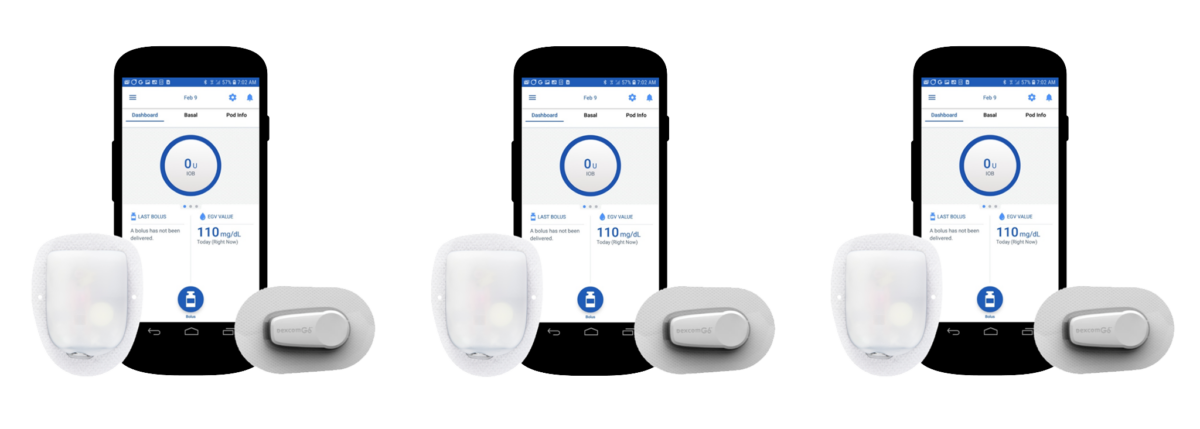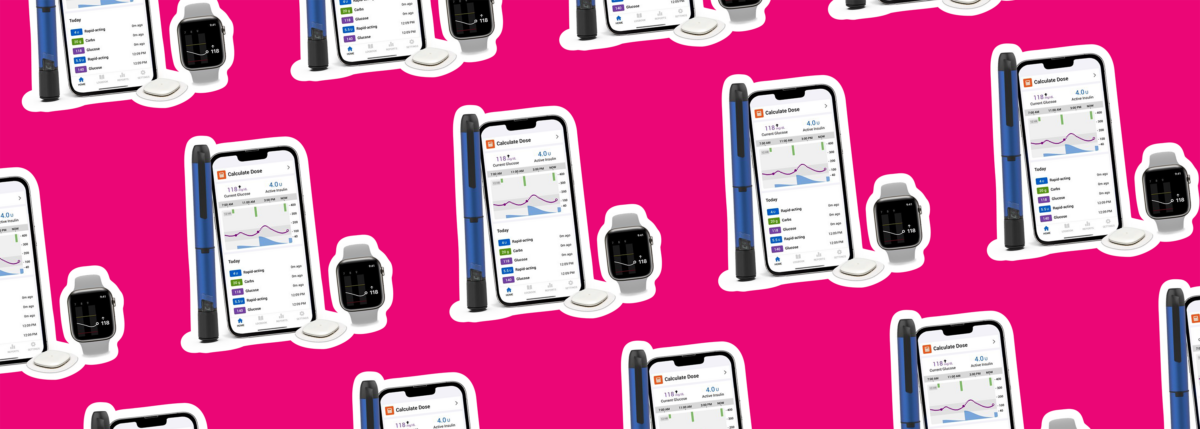Talking COVID-19’s Impact on ADCES with President Kellie Antinori-Lent
Written by: Todd Boudreaux
6 minute read
September 3, 2020
ADCES President Kellie Antinori-Lent talks to Beyond Type 2 about moving the ADCES Annual Conference to a virtual platform due to the COVID-19 pandemic, how diabetes care and education specialists are adjusting their approaches to working with patients during coronavirus, and the importance of having a day dedicated to racial equity at the conference.
Kellie Antinori-Lent, MSN, RN, ACNS-BC, BC-ADM, CDCES, is the 2020 president of the Association of Diabetes Care & Education Specialists (ADCES). Antinori-Lent, who works as a diabetes clinical nurse specialist at the University of Pittsburgh Medical Center, has been serving patients with diabetes for over 30 years and serving ADCES in various leadership positions for the last 10 years. In our interview below, Antinori-Lent chatted with Beyond Type 2 about moving the ADCES Annual Conference to a virtual platform due to the COVID-19 pandemic, how diabetes care and education specialists are adjusting their approaches to working with patients during coronavirus and the importance of having a day dedicated to racial equity at the conference.
BT2: Hi Kellie, thanks for joining us! Can you tell us about your work background and history with ADCES?
I’m a diabetes clinical nurse specialist and currently working at the University of Pittsburgh Medical Center. I serve as the resident expert in diabetes within the nursing education & research department at UPMC Shadyside. My current job focuses on educating patients, nurses and supporting medical staff. With 30-40 percent of patients having a diabetes diagnosis, I am kept quite busy with consults for diabetes education and discharge planning. It’s a different type of work compared to out-patient office and clinic-based care where I spent most of my career. Once patients are discharged, you may receive a follow-up call now and then, but that is about it. You don’t get the opportunity to develop a relationship with patients like you are able to do in an out-patient setting. In the hospital, however, I do feel a responsibility for getting patients started on the right track. Doing this early on in a diabetes diagnosis or during a critical time, like transitioning to insulin, can prepare them for success.
My leadership journey with ADCES began in 2010. I received a phone call from one of my colleagues who worked at our children’s hospital and she invited me to be a part of the local diabetes chapter of American Association of Diabetes Educators (AADE) known back then as the Western Pennsylvania Association of Diabetes Educators. I had no idea what I was getting myself into but 10 years later, I am still here!
When I agreed to chair the local chapter in 2012, ADCES was embarking on a membership model transition. They were moving from the chapter model to what is referred to as a member affiliates model. There was a lot of uncertainty and uneasiness. Many diabetes care and education specialists wanted to remain a chapter. After leaning in and investigating the purpose and benefits, it was clear that the change would make a stronger organization—different—yet better. My job then was to take what I learned and share it with my colleagues, our members. It was left up to a vote. I still have the ballot results in my files. The group voted to transition with 82 percent in favor.
This experience prepared me for the future changes at the national level including renaming the specialty and retitling the association. I always feel that change is necessary for growth. It strengthens us and in each of these cases, it did. Sometimes you have to wait to see the benefit, but I truly believe the changes will serve our mission well.
How did ADCES adjust to the COVID-19 pandemic? How are you advising Diabetes Care and Education Specialists to work with patients?
I was recovering from foot surgery in February, at the start of the pandemic. I received an email from a colleague in late February asking what impact I thought COVID-19 would have on the annual conference. At the end of February, I was thinking, ‘How could that have an impact on something scheduled for August?’
I sat back and thought maybe God is trying to tell me something and guide me in some way. It was an odd moment. I then sent an email to ADCES CEO, Chuck [Macfarlane], and said I have a feeling we need to take a deeper look at this virus. Within two weeks of sending that email, all the lock-downs started. I actually went back to work when everyone was beginning to quarantine. ADCES seamlessly transitioned to working remotely within two weeks. They didn’t miss a beat. There was no disruption in any type of work.
Of course, one of the most important questions in front of us was: how do we continue to provide the service to our patients? Telehealth gained a tremendous amount of attention and we were thrilled with the Centers for Medicare and Medicaid Services’ (CMS) decision to cover telehealth visits. Originally, only part of our membership, providers as well as the dietitians, were permitted to bill for telehealth. Nurses and pharmacists were not included in that waiver.
Our advocacy division, under the leadership of Kate Thomas, continued to work with members and CMS to have the ruling changed. The day before our annual conference we learned that CMS now allows nurses and pharmacists to bill for diabetes self-management education and support (DSMES) offered via telehealth within accredited or recognized DSMES programs. We had over 700 of our members write letters to CMS to help get this changed as ADCES staff lobbied for these updates. I’m so proud of our members and ADCES leadership for their dedication and hard work.
When was the decision to make the ADCES conference virtual made? What were the planning and transition like?
The luxury of having an August meeting allowed us to see how several other organizations were going to hold their meetings. We made the final decision mid-July.
ADCES20 annual conference planning committee program chair and former ADCES President, Joan Bardsley, and I both felt very strongly that we needed to have the annual conference committee involved in all of the decisions and the changes. We had this amazing one-of-a-kind program planned, and then everything changed. We also realized the importance of adapting content to reflect current topics in the meeting, those that incorporated what was going on in the world.
Of course one of these topics was the virus itself, COVID-19. Others included telehealth and racial equity.
I would like to give a shout out to ADCES Chief Operating Officer, Gina McClure; Director of Meetings, Jackie Bellan; and Director of Practice and Content Development, Joanne Rinker. They were the masterminds behind the virtual meeting. The great news is that all registrants have until November 30th to watch the sessions. More time to complete means more CE’s!
What are the benefits of having a virtual meeting? Are there any sessions, in particular, you want to highlight?
The benefits are that you can listen to the sessions almost anywhere at any time. I listen to sessions on my drive to work and during my workouts on my phone. The sessions are mostly 30 minutes, so they are quick and easy to listen to. The platform makes it easy to obtain and print out handouts too. Pretty efficient!
I would also like to highlight the business sessions. Diabetes care and education specialists are talented at providing care and education, but where we need to focus moving forward—which will help us realize our vision—is being able to articulate the value of the work we do.
A session by Teresa Pearson, “Population Health: Articulating Your Value,” helped us identify how to illustrate the value of the work we provide our organizations with respect to value-based care. For decades we have focused on being the best care provider. Now we must focus on articulating our value to administrators, health systems and our practices so that we can improve referrals and grow our practices. We need to be thriving, not simply surviving. In 2021 and post-COVID, ADCES will be focusing more on this very topic: helping members demonstrate their value and impact on population health and population-based performance.
Another highlight was the racial equity presentation by Uche Blackstock, MD. It was excellent! Structural racism is real and has no place in healthcare. Some of the information Dr. Blackstock discusses helps us to stop and look at something we may not all be aware of. It’s time to do more work in this area to make a difference.
How did you decide on a Racial Equity Themed Day?
When we look at our membership, our leadership, at our board of directors, we realized we are not diverse. The next question was, where do we begin. We needed to learn what we did not know. By moving from a diversity and inclusion theme to racial equity, we felt it was the right step at a critical time. Moving forward, we are going to be more deliberate on our next steps. This was just the beginning.
What else should our community know about the future of ADCES?
This month we are excited to announce that there are two technology papers being published in The Diabetes Educator. The papers will begin to cement our expertise as technology experts and data interpreters. You will see a strong focus on technology and the role of the diabetes care & education specialist in 2021.
Also in 2021, we will begin to dive into the cardiometabolic healthcare continuum and the role of the diabetes care and education specialist. We also have a national practice survey coming out, as the last one was completed in 2017.
I will end with a shout out to the much-awaited competencies for diabetes care and education specialists. Also published this month in The Diabetes Educator, the competencies provide a master list of the foundational knowledge, skills and abilities of the diabetes care and education specialist.
And this is just a glimpse of the great work on the horizon!

Author
Todd Boudreaux
Todd was diagnosed with type 1 diabetes (T1D) in 2000, and has been unofficially advocating for T1D ever since. Before joining the team at Beyond Type 1, Todd wrote and produced television shows for Discovery Channel, Travel Channel and Animal Planet. When he’s not in the office, you can usually find him at a baseball game, traveling, or drawing on his Etch A Sketch. You can also follow him on Instagram.
Related Resources

Already compatible with Dexcom’s G6 and G7 continuous glucose monitors (CGMs), the Omnipod 5 Automated...
Read more

The younger a person is diagnosed with type 2 diabetes, especially those with obesity, the...
Read more

The Oura Ring, which tracks things like sleep, heart rate, and activity, is joining forces...
Read more

